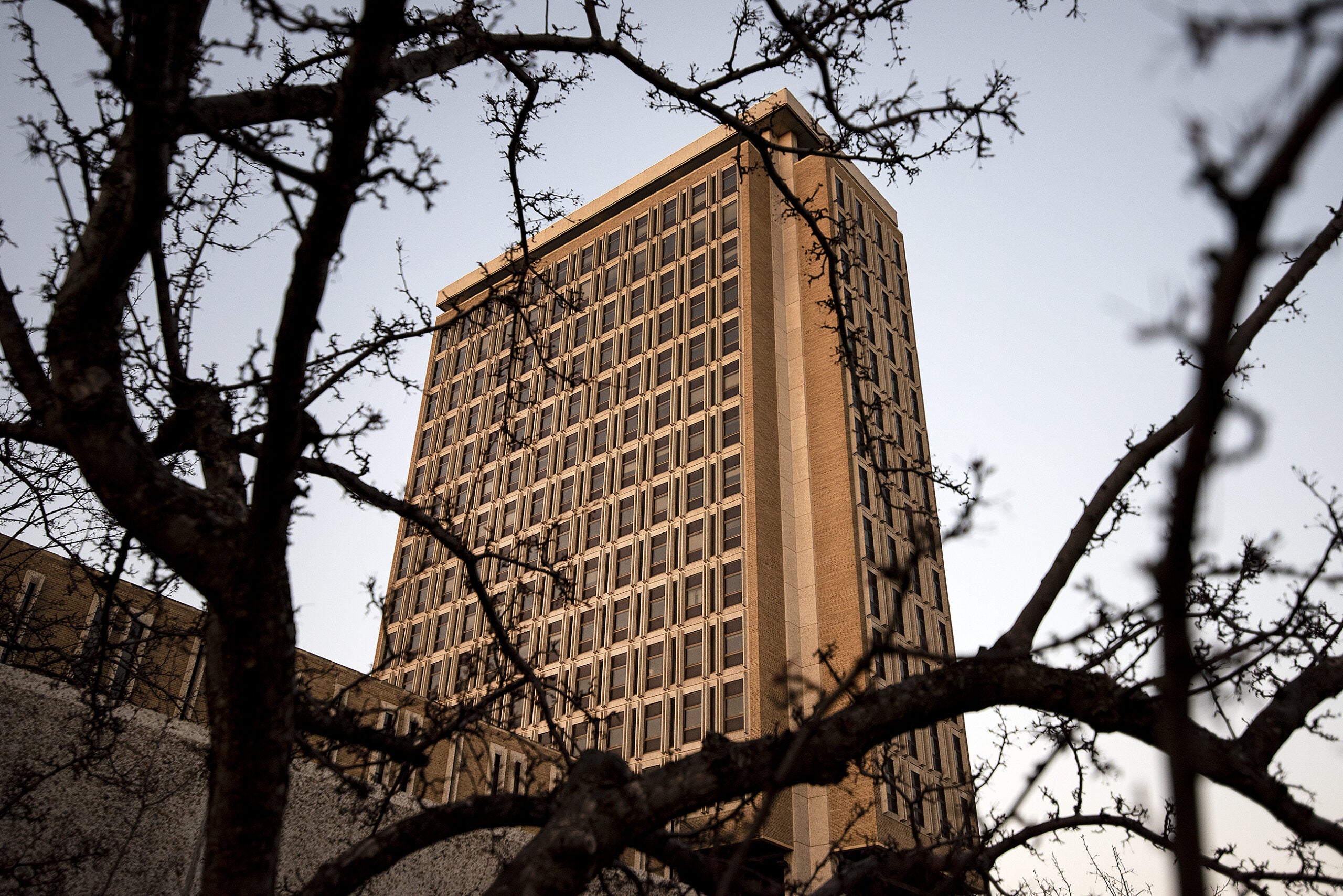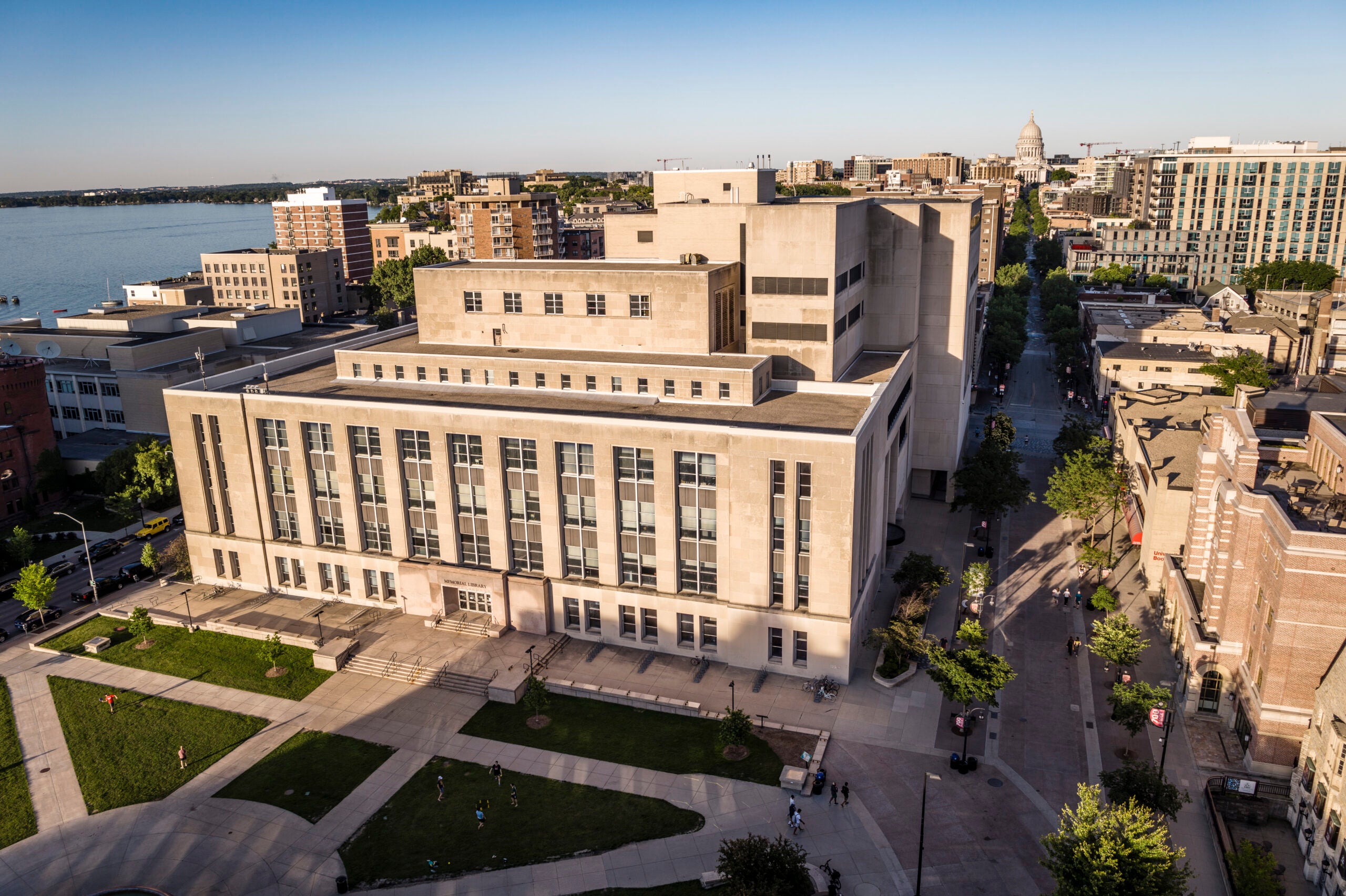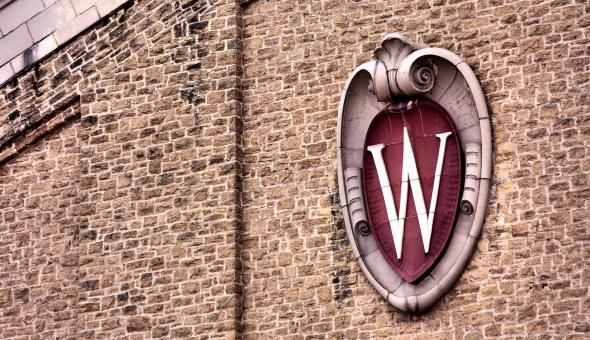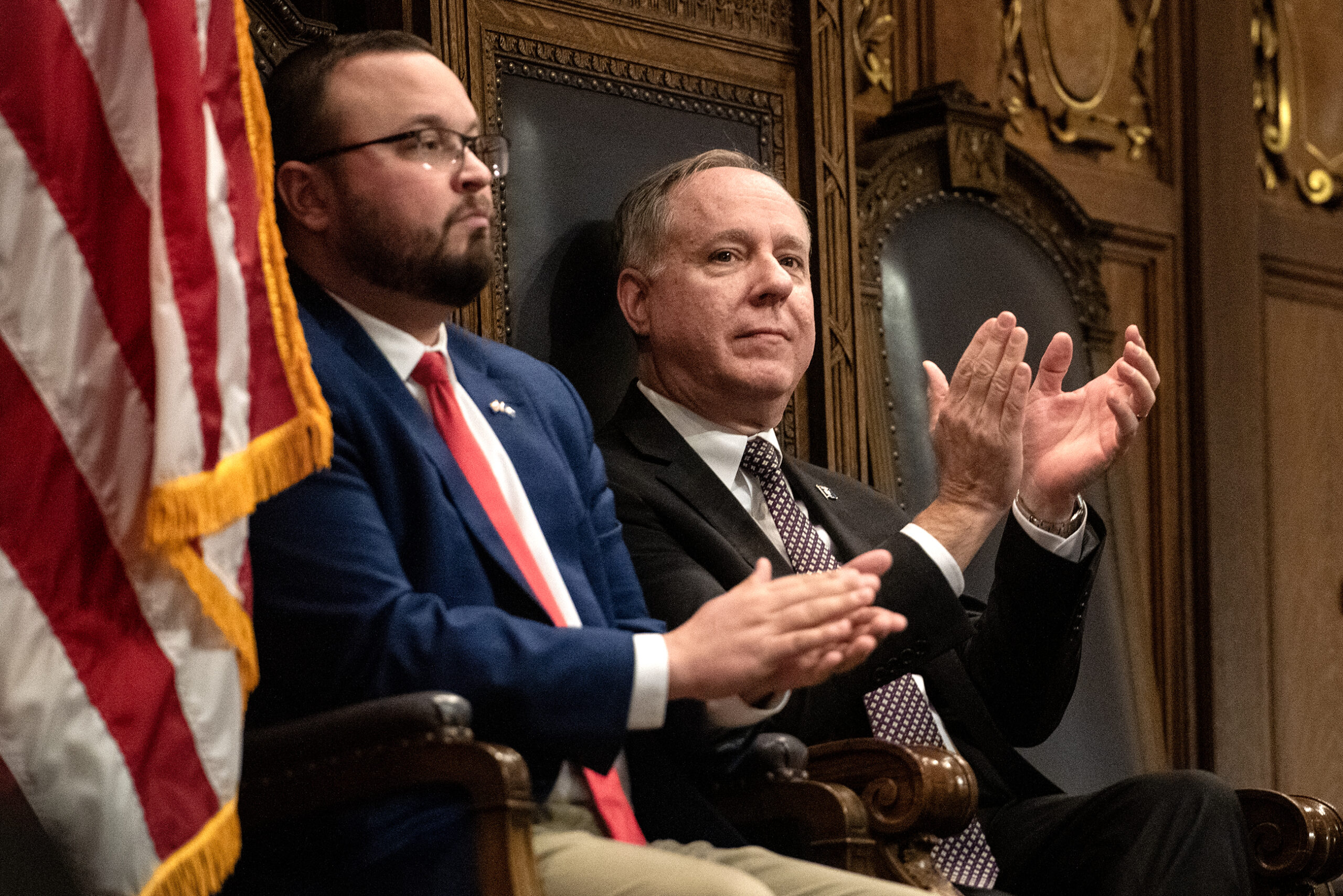This summer could see the launch of a renewed search for the next president of the University of Wisconsin System. It would come just over a year after a controversial, failed search in 2020 that included candidates who said they would only seek the job if they could be named as a sole finalist.
Selecting the next search committee will be up to the regent president. The election for that position is slated for the board’s June meeting. Vice President Michael Grebe said he expects to win, though a possible contested election was discussed by regents during the board’s meeting this month. That hints at potential challengers for the seat.
Grebe led last year’s UW president search and he knows what he’d do differently next time.
News with a little more humanity
WPR’s “Wisconsin Today” newsletter keeps you connected to the state you love without feeling overwhelmed. No paywall. No agenda. No corporate filter.
“We’re going to do this again,” Grebe said. “And when we start it again, my expectation is that I will name a search committee that looks a lot more like what one would think of as a traditional search committee, not a committee that looks like the one that was assembled two years ago.”
On Nov, 1, 2019, current Regent President Drew Petersen named a nine-member search and screen committee, including Grebe as chair, to find a successor to former UW President Ray Cross. It was half the size of previous committees and excluded faculty, staff and non-regent students as members for the first time in at least 44 years.
“I don’t think saying that some people went ballistic is inaccurate,” said UW-Milwaukee professor and faculty senate university committee chair Kathleen Dolan.
Faculty, staff and student senate groups at campuses across the system passed resolutions condemning the makeup of the search committee. At the same time, Grebe and Petersen received letters and emails from Democratic state lawmakers, Gov. Tony Evers and employees like Dolan asking for more inclusion in the process.
Their response was consistent: shared governance groups would have a chance to weigh in, hiring a system president was a primary responsibility of regents and having a smaller committee made it more nimble while navigating a competitive job market.
Grebe said he’s proud of the good-faith work the search committee put in, but recognizes its composition was an issue.
“I think that the makeup of the committee proved to be such a topic of discontent that it made it difficult for us to come to the conclusion that we wanted,” Grebe said.
Marred From The Start
On June 2, 2020, the search broke precedent again when University of Alaska System President Jim Johnsen was named the only finalist for the job. The announcement drew more critical emails from employees and alumni who also pointed out two no-confidence votes against him in Alaska and an accreditation issue within one of that state’s universities in 2019. A System press release cited challenges related to the COVID-19 pandemic in its explanation for the sole finalist.
“Several candidates removed their names from consideration near the end of the process, with some expressing concern over being named publicly as a finalist during the pandemic,” the release said.
The fear of being publicly identified was so strong for some candidates that they attempted to set conditions before vying for the job, according to an email obtained through a state open records request.
On Feb. 26, 2020, consultant Tom Fitch of higher education executive search firm Storbeck/Pimentel & Associates — which was paid more than $214,000 to assist the UW System in the search — gave Grebe an update on recruiting efforts prior to a committee meeting.
“We are thrilled to see strong interest in the role from national leaders, but two in particular have been very clear that they can only engage in the search if there is a possibility that naming one finalist is a viable option,” said Fitch. “They would not be able to accept a finalist invitation if they were one of two, three or four.”
The firm split during the search. A spokesperson for what is now Storbeck Search told WPR that consultants don’t comment on searches they’ve been involved with.
In an interview with WPR, former University of Alaska System President Johnsen said he was told he would be the sole finalist the month before the public announcement. He said Fitch’s email wasn’t about him.
“I was aware that there were other candidates and that they were hesitating to be named unless they were the sole finalist,” said Johnsen. “But if there was going to be a horse race at the end, they didn’t want that to be in public. So, I was not afraid of competing or being outed, if you will, as a finalist for the role.”
Grebe told WPR he and Petersen never promised anyone that a sole finalist would be named during the search.
“And in fact, our expectation all along the way was that there would not be,” he said.
Near the end of the monthslong search, Grebe said the committee was prepared to publicly announce three finalists, though Johnsen had been identified as the clear favorite. Then, he said, one pulled out for personal reasons.
“The other withdrew because that candidate came to the conclusion that (they were) not comfortable being identified as anything other than a sole finalist because of the jeopardy that they thought it might put them in, in their current position,” said Grebe. “I had a lengthy, lengthy discussion with that person, and we were unable to convince that candidate to stay in the search.”
A UW System spokesperson did not clarify a follow-up question asking if this candidate was among those who wanted to be named as a sole finalist from the outset of the search.
Johnsen Recording ‘Could Cause Real Issues’ In Alaska
On June 9, 2020, Johnsen participated in listening sessions and an interview featuring questions from stakeholders at the state’s universities. While it was streamed live, emails show there were concerns about the recording being widely accessible by the public.
The day before the broadcast, UW System special assistant to the Board of Regents Margo Lessard emailed Grebe and Petersen about how accessible the video should be.
“The original plan was to have the campus forum video recording be placed on the website in such a way that a person would need to be a member of the UWS community in order to view the recording — the public at large would not have access,” wrote Lessard. “From a finalist’s perspective, it would seem important that the recording not be open to the public.”
Petersen replied by telling Lessard that “we absolutely” have to make the recording public and that a link to the session had already been shared with news outlets.
“Sorry for the inconvenience, but this is important to maintain transparency in the search,” Petersen wrote.
Hours after Johnsen’s interview was streamed, Fitch, the consultant, made a stronger pitch to keep the video under wraps.
“Michael and Drew, may we ask you to reconsider making that public?” asked Fitch. “We have been operating under the assumption that it would not be and have told Jim (Johnsen) that. Have you let him know? We fear it may cause real issues for him back in Alaska if/when the media jumps on it.”
When asked why Lessard and Fitch thought there would be limited access to the recording of Johnsen’s interview, Grebe said the email exchanges were based on a misunderstanding and neither he nor Petersen ever intended to require a UW login to watch it.
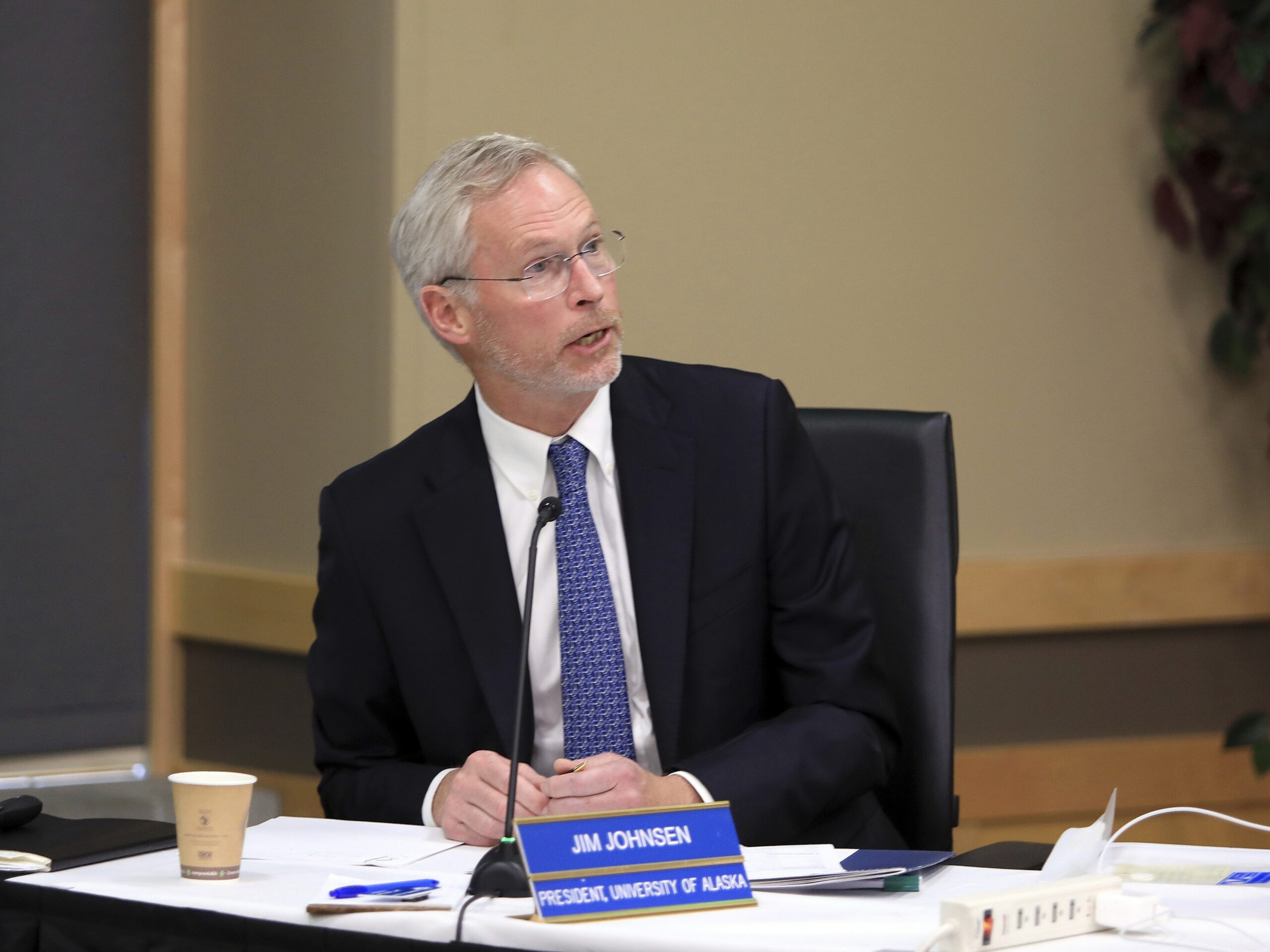
Johnsen’s interview only seemed to fan the flames among those already upset with the search process. In two days, a UW System comment page was inundated with criticisms.
“Wait. One day to watch this and comment?” said one commenter from UW-Madison. “What a joke. Luckily this public forum should be disqualifying and the Search Committee will declare a failed search and start over. Because this is embarrassing for the UW System.”
Many commenters were especially critical of Johnsen’s answers about diversity and inclusion. The responses included stories about being the only white person at a Native-owned corporation and being close with a Black neighbor during his childhood.
“His response revealed ignorance regarding systemic injustices, especially shocking given the state of the world,” said a commenter from UW-Eau Claire.
Johnsen told WPR he doesn’t regret what he said because it was his lived experience.
A Failed Search
On the evening of June 11, 2020, presidential search committee member and UW-Superior Chancellor Renée Wachter emailed Grebe about an upcoming vote on Johnsen’s candidacy.
“After sitting in on three of the interviews that happened on Tuesday, scanning the comments, reading the emails which were sent to me, talking with my own folks on campus, and doing some reflecting, I just wanted you to have a heads-up that I won’t be in favor of advancing Jim’s candidacy tomorrow,” wrote Wachter.
Wachter declined an interview for this story. Records from WPR’s request show members of the search committee signed non-disclosure agreements. Such agreements are not uncommon in university and system searches across the country, though two individuals involved with the UW System search that netted Ray Cross in 2014 didn’t recall signing them.
The same evening Wachter informed Grebe she would be voting against the finalist, he got a call from Johnsen who said he was withdrawing from the search.
Coordinated press releases were sent the next morning. The first came from the University of Alaska System and quoted Johnsen as saying it was clear that he was being called to lead Alaska’s universities through “these challenging times.” The statement also said it was clear the UW System had “process issues to work out.”
Johnsen resigned as president of the Alaska System less than a month later. He told WPR he began exit negotiations with its Board of Regents within a day of pulling out of the UW System search.
In the UW System press release announcing Johnsen’s withdrawal from the search, Petersen called it a “dark day for the UW System.”
State Assembly Speaker Robin Vos, R-Rochester, released a statement that placed blame squarely on faculty, staff and students who had opposed Johnsen.
“If leftist liberals on campus can’t decide on the UW System President, they become critics and drive out a qualified leader,” said Vos. “We can’t let intimidation become the way we choose our campus leaders.”
Johnsen told WPR he’d become a target “of this big partisan, polarized, political conflict in the state” and that lingering anger over how the search was conducted would have been a distraction as he tried to implement policies as UW System president.
“And again, instead of dealing with real issues that need to be addressed, like, ‘How do we strengthen this great university system even more and do so more cost effectively?’ it could easily be, you know, ‘We didn’t have a voice in that search, and, therefore he’s not legitimate,’” said Johnsen. “‘And if we did have a voice, then he wouldn’t have been selected.’ You can’t prove that, nor can you disprove.”
Universities Trending Toward Single Finalists
While the concept of naming a single finalist for UW System president was new to Wisconsin, it’s part of a growing trend across higher education. Universities and systems in Minnesota, Oregon, Nebraska, Texas and Georgia have announced single finalists within the past three years.
Judith Wilde, of George Mason University, said the trend is primarily driven by the firms hired to search for and recruit candidates for executive roles in higher education.
“It is something that is being used even in states that have so-called sunshine laws that typically require a minimum of three, sometimes up to five candidates be identified as final candidates,” Wilde said. “But they’ve found ways to get around that.”
In 2015, a change to Wisconsin’s open records law was added to the state budget exempting the UW System from having to publicly identify “the five most qualified applicants.”
Similar legislation was introduced in the Florida state Senate last year.
Jay Lemons is president of national consulting firm Academic Search. He said closed searches for higher education executives often bring in larger pools of candidates for fear of repercussions associated with job hunting and naming a single finalist is as close as some systems can get to a closed process.
As for the failed UW System search, Lemons said it appears the downfall started with the committee’s makeup.
“It feels to me like that one had some tragic elements that were, you know, sort of sadly, baked in,” said Lemons. “Those cracks continued to reveal themselves through that process.”
[[{“fid”:”1489631″,”view_mode”:”full_width”,”fields”:{“format”:”full_width”,”alignment”:””,”field_image_caption[und][0][value]”:”%3Cp%3EThe%20sun%20sets%20behind%20Van%20Hise%20Hall%20at%20University%20of%20Wisconsin-Madison.%20%3Cem%3EAngela%20Major%2FWPR%3C%2Fem%3E%3C%2Fp%3E%0A”,”field_image_caption[und][0][format]”:”full_html”,”field_file_image_alt_text[und][0][value]”:”A sunset can be seen behind Van Hise Hall on UW-Madison’s campus”,”field_file_image_title_text[und][0][value]”:”Van Hise Hall”},”type”:”media”,”field_deltas”:{“3”:{“format”:”full_width”,”alignment”:””,”field_image_caption[und][0][value]”:”%3Cp%3EThe%20sun%20sets%20behind%20Van%20Hise%20Hall%20at%20University%20of%20Wisconsin-Madison.%20%3Cem%3EAngela%20Major%2FWPR%3C%2Fem%3E%3C%2Fp%3E%0A”,”field_image_caption[und][0][format]”:”full_html”,”field_file_image_alt_text[und][0][value]”:”A sunset can be seen behind Van Hise Hall on UW-Madison’s campus”,”field_file_image_title_text[und][0][value]”:”Van Hise Hall”}},”link_text”:false,”attributes”:{“alt”:”A sunset can be seen behind Van Hise Hall on UW-Madison’s campus”,”title”:”Van Hise Hall”,”class”:”media-element file-full-width”,”data-delta”:”3″}}]]
In an interview with WPR, Michael Poliakoff, president of the nonprofit American Council of Trustees and Alumni, said the single-finalist phenomenon is becoming more frequent “to the detriment of higher education.”
Poliakoff said there may be specific and limited exceptions that would warrant one person being named to university leadership roles.
“But this seems to be much more of an exercise in ‘I’ll only play this game if you will guarantee that I win it,’” said Poliakoff. “And that does not strike me as a formula that under most circumstances will pull out the best candidates.”
UW-Milwaukee university committee chair Kathleen Dolan said she and faculty members across the UW System tried to warn Grebe, Petersen and the rest of the Board of Regents that excluding shared governance from the search committee while moving forward with a single, unpopular option would likely end badly.
“We told them, ‘You’re going to waste six, eight months on this process and it may not work,’” said Dolan. “And they did. They wasted all that time and they helped to end Johnsen’s career.”
Still, Grebe said he doesn’t consider the search a failure because it resulted in the interim appointment of former governor and U.S. Department of Health And Human Services Secretary Tommy Thompson to lead the state’s 26 campuses.
The appointment was praised by state lawmakers, regents, campus administrators and faculty like Dolan, who called Thompson the “absolute perfect person” to lead the UW System at a time of historic financial losses tied to the COVID-19 pandemic.
Thompson will continue leading the UW System on an interim basis until a new president is hired.
If he’s elected president of the Board of Regents, Grebe said he expects the entire board to be involved in the next search, with a potential appointee of Gov. Tony Evers at the helm.
Editor’s note: Wisconsin Public Radio is a service of the University of Wisconsin-Madison and the Wisconsin Educational Communications Board.
Wisconsin Public Radio, © Copyright 2026, Board of Regents of the University of Wisconsin System and Wisconsin Educational Communications Board.

